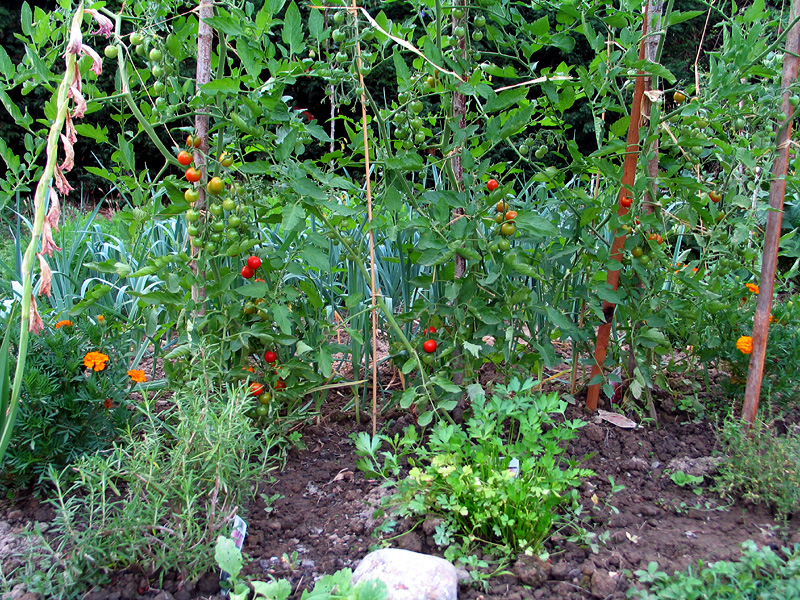 Back when I used to live in East Dallas, I'd often drive by Stonewall Jackson Elementary school on Mockingbird Lane. It's a fairly nondescript little school, but it sports a terrific garden that's visible from the street. I'd often see folks from the community, as well as the children, puttering around, and I was always amazed at how lovely, inviting, and verdant it looked.
Back when I used to live in East Dallas, I'd often drive by Stonewall Jackson Elementary school on Mockingbird Lane. It's a fairly nondescript little school, but it sports a terrific garden that's visible from the street. I'd often see folks from the community, as well as the children, puttering around, and I was always amazed at how lovely, inviting, and verdant it looked.Recently, however, the Dallas Independent School District--in response to its own idiocy concerning budget mismanagement--has decided to curtail this highly successful outdoor learning program despite clear evidence of its success.
Although Mark Painter will still try to maintain the garden after school hours (being paid by the PTA instead of the district) the overall stupidity of this move is indicative of how shallow our current approach to education has become. Experiential learning has been shown to enhance the learning process, especially in science and maths, by connecting students with real-world problems to which they can apply principles and concepts. Despite the fact that American students, especially those in urban areas, are scoring lower than ever on high-stakes exams in the sciences, this seems like the dumbest possible move any school district could make.
For examples of how programs like this work, I suggest looking at the University of California at Davis's Science, Technology and Environmental Literacy Workgroup, or at the Wildercom website developed by James T. Neill, a psychologist and environmental educator from Perth, Australia.
American students continue to be outscored by their counterparts in other countries, as shown in a recent Program for International Student Assessment (PISA) exam in science, and they trailed even further in mathematics. For details on the data, see the PowerPoint presentation by Andreas Schleicher, who analyzes the 2006 data in excrutiating--but rather interesting--detail, available on the Alliance for Excellent Education website. Schleicher is the director of PISA and head of the Indicators and Analysis Division of the Organisation for Economic Co-operation and Development’s (OECD) Directorate for Education. Further resources are available on the link.
I am certainly in no position to offer a great deal of advice about science teaching, except that I spent years working with kids at the Heard Museum and with the Plano ISD outdoor education effort. But I also love science, and I know how eager children are to understand the natural world. Our inability as a nation to inspire our children to understand scientific principles and seek careers in science will ultimately lead to our own intellectual poverty.
Ill-advised cost-cutting measures like closing down the garden program at Stonewall Jackson are simply going to turn around and bite us in the backside unless the educational bureaucracy starts paying attention to what really works.
Photo: a kitchen garden not unlike the one at Stonewall Jackson, by Jean-Noël Lafargue, via Wikimedia Commons.


1 comment:
Oh, don't you worry your pretty little head, now. I'm sure the district will be buying new textbooks that will raise those precious scores! Why would we want children applying knowledge?!
No, seriously, this is so sad! and infuriating. and baffling. My friend Mara's kids went to Stonewall before they escaped to Portland a few years ago. She will be so sad when I tell her this news.
Our school cut funding for the super cool science lab we had. But by gum they all got brand new math books! Just what the kids needed.
Post a Comment